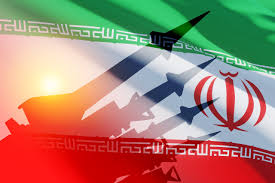
Breaking News
 The War On Iran – Summing Up The First Round
The War On Iran – Summing Up The First Round
 Why 'The Shawshank Redemption' is the best movie about investing ever made
Why 'The Shawshank Redemption' is the best movie about investing ever made
 App-y Travels: Private Aviation Has Finally Embraced Smartphone Chartering
App-y Travels: Private Aviation Has Finally Embraced Smartphone Chartering
 The portable mosquito air defense system.
The portable mosquito air defense system.
Top Tech News
 xAI Grok 3.5 Renamed Grok 4 and Has Specialized Coding Model
xAI Grok 3.5 Renamed Grok 4 and Has Specialized Coding Model
 AI goes full HAL: Blackmail, espionage, and murder to avoid shutdown
AI goes full HAL: Blackmail, espionage, and murder to avoid shutdown
 BREAKING UPDATE Neuralink and Optimus
BREAKING UPDATE Neuralink and Optimus
 1900 Scientists Say 'Climate Change Not Caused By CO2' – The Real Environment Movement...
1900 Scientists Say 'Climate Change Not Caused By CO2' – The Real Environment Movement...
 New molecule could create stamp-sized drives with 100x more storage
New molecule could create stamp-sized drives with 100x more storage
 DARPA fast tracks flight tests for new military drones
DARPA fast tracks flight tests for new military drones
 ChatGPT May Be Eroding Critical Thinking Skills, According to a New MIT Study
ChatGPT May Be Eroding Critical Thinking Skills, According to a New MIT Study
 How China Won the Thorium Nuclear Energy Race
How China Won the Thorium Nuclear Energy Race
 Sunlight-Powered Catalyst Supercharges Green Hydrogen Production by 800%
Sunlight-Powered Catalyst Supercharges Green Hydrogen Production by 800%
The War On Iran – Summing Up The First Round

Control by the military and political leadership of Iran was never in doubt. Attempts to kill Ayatollah Khamenei were unsuccessful (and would have not mattered at all). The military response to the Israeli attack was quick and successful.
After just twelve days of war Israel sued for peace. Iran agreed but may well rue that decision in future.
It had the advantage of being able to fight and win an attritional war against Israel. At the same time it could control U.S. reactions by its dominance over the oil-flow through the Strait of Hormuz. Holding the war for a few days or weeks, as is done now, will only give time to Israel to prepare for next round.
Israel's understanding of the current ceasefire is that it will allow it to hit again at Iran as soon as the U.S. has refilled its munition storage:
Katz told the news outlets that Israel maintained aerial superiority over Iran and was poised to strike again.
"We won't let Iran develop nuclear weapons and threatening long-range missiles," he told Channel 12. To Channel 13, the defense minister said: "The main point is that the policy of the State of Israel and the government of Israel is to implement enforcement actions against Iran."
He said the policy would be "like in Lebanon" — where Israel has targeted Hezbollah's attempts to rearm — "just times 100."
Tehran is likely ready to hit back.
A secondary objective of the regime change war against Iran was to eliminate its nuclear program. That part also failed.
Several strikes have damaged Iran's primary enrichment facilities. But it has retained the highly enriched Uranium. It also retained a sufficient number of its most modern centrifuges and so far unused underground facilities to further enrich it to weapon's grade. Should Iran decide to make nuclear weapons it could have them within a few months.
Iran has ended all cooperation with the IAEA. The eyes and ears of western intelligence on the ground in Iran are no longer there. Future strikes will thus lack precision.
Trump bombing attack against the underground enrichment facility in Fordow was supposed to be a one-and-done-with operation. He wanted to to do away with the Iran problem to get on with his domestic program.
But the brashness of insisting that Iran's nuclear program was 'obliterated' is coming back at haunt him. He will be pressed to do more even while there is little left that can be done.

 He 3D Printed a Whole House
He 3D Printed a Whole House

